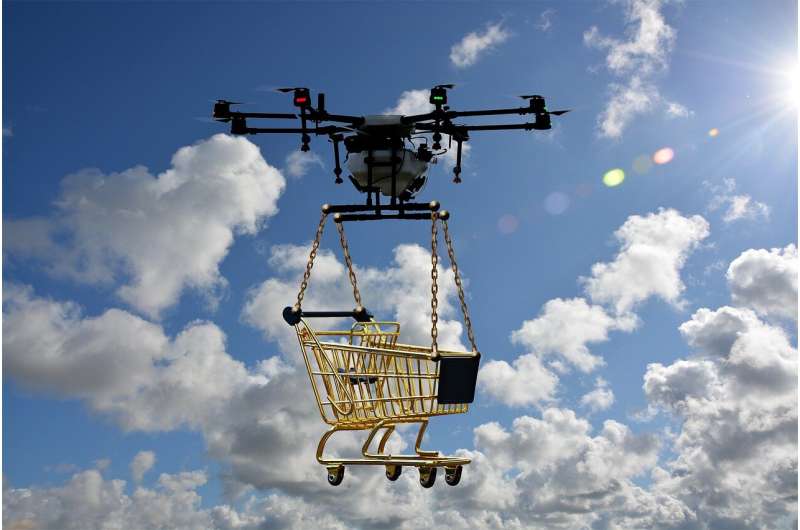This article has been reviewed according to Science X's editorial process and policies. Editors have highlighted the following attributes while ensuring the content's credibility:
fact-checked
trusted source
proofread
Australians trust new retail technologies but are slow to adopt them, report finds

Researchers from the Queensland University of Technology have found that while Australians generally trust retail technology, they remain hesitant to swiftly adopt new advancements, largely due to concerns over security and privacy.
The loss of human interaction is another key issue, and while many Australians embrace new technologies in their everyday lives, they are less willing to accept them from organizations despite a growing appetite for convenience via automation.
Led by Dr. Nadine Ostern, Cisco Chair in Trusted Retail, the research team from the QUT Center for Future Enterprise has published the report, "Trust Trend Report: Consumer Perceptions of Retail Technology in Australia 2024."
The findings from a survey conducted by Dr. Ostern, Dr. Shannon Colville and Dr. Scott Murray suggest trust issues revolving around technical and social aspects of retail technology, including interactive shopping tools, biometric authentication and automated delivery, were significant barriers to uptake, but such concerns could be overcome by greater transparency and clearer communication.
The research aims to provide critical data points for retail, business, and industry stakeholders to alleviate customer fears and bridge the technology gap.
"2024 has been named the 'Year of AI,' marking a significant shift for individuals, organizations, and society as a whole," Dr. Ostern said.
"What was once considered futuristic is now becoming a reality. People are moving from merely being curious about sophisticated technologies, such as generative AI, to integrating them into their everyday lives.
"But when offered by organizations, especially retailers, this openness often comes to a halt. For retailers, digital transformation and technology adoption, which includes more than just AI, isn't just about their own growth, it's about effectively transitioning their customers to trusting the new tech.
"We found that customers are both excited about AI and at the same time fear losing human connection. It will be important for retailers to strike the right balance when offering retail technology and automation to their customers.
"Retailers must also understand both the intended and unintended consequences of tech usage to address customers' trust concerns effectively."
Dr. Ostern said the white paper offered a roadmap to navigating the complexities of the evolving retail landscape with the survey revealing several pivotal insights including:
- Trusting but hesitant: Australians trust new technologies but are slow to adopt them. While 78.8% of people generally consider themselves trusting, only 39.6% are open to adopting new technologies. Trust concerns about technical and social aspects, such as privacy and data security, hinder widespread acceptance.
- Value proposition is key: When consumers understand the tangible benefits of new technology, they are more inclined to adopt it.
- Transparency matters: Consumers want to know how their data is used and what benefits they will receive in return.
- Interest in automation: There is a notable openness among Australians towards fully automated stores and self-driving vehicles. This indicates a growing interest in automating and streamlining shopping processes.
- The future is shaped by AI: The appetite for convenience and efficiency among Australians suggests a promising future for AI-driven retail innovations.
Dr. Ostern said respondents from the ACT were the most likely of all States and Territories to have trust in general (90% of respondents) and trust in technology (65% of respondents), while Victorians were most likely to adopt new technologies (58% of respondents).
The findings also underscored the criticality of addressing both technical and social concerns to foster greater consumer trust and adoption of retail technology.
"Retailers often struggle to communicate the customer benefits of retail technology," she said.
"AI cameras above self-checkout stations, for example, may help prevent theft but customers can feel unfairly mistrusted. However, these cameras could also be used to ensure customers don't overpay, which would build trust.
"Unfortunately, current systems aren't designed for this, and the focus on security and data breaches often overshadows potential customer benefits. This missed opportunity leads customers to conclude retail technology is often only benefitting the retailer."
More information: Trust Trend Report: Consumer Perceptions of Retail Technology in Australia 2024




















